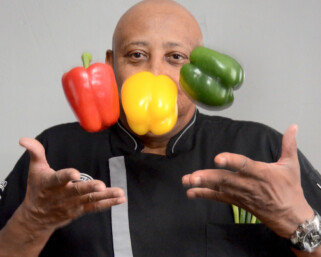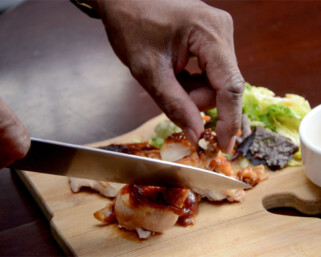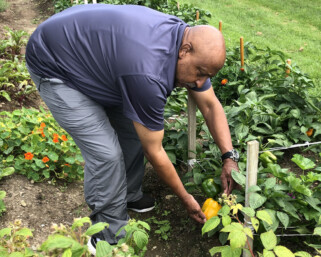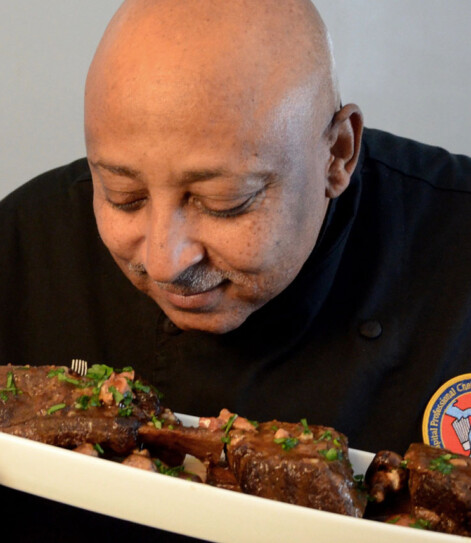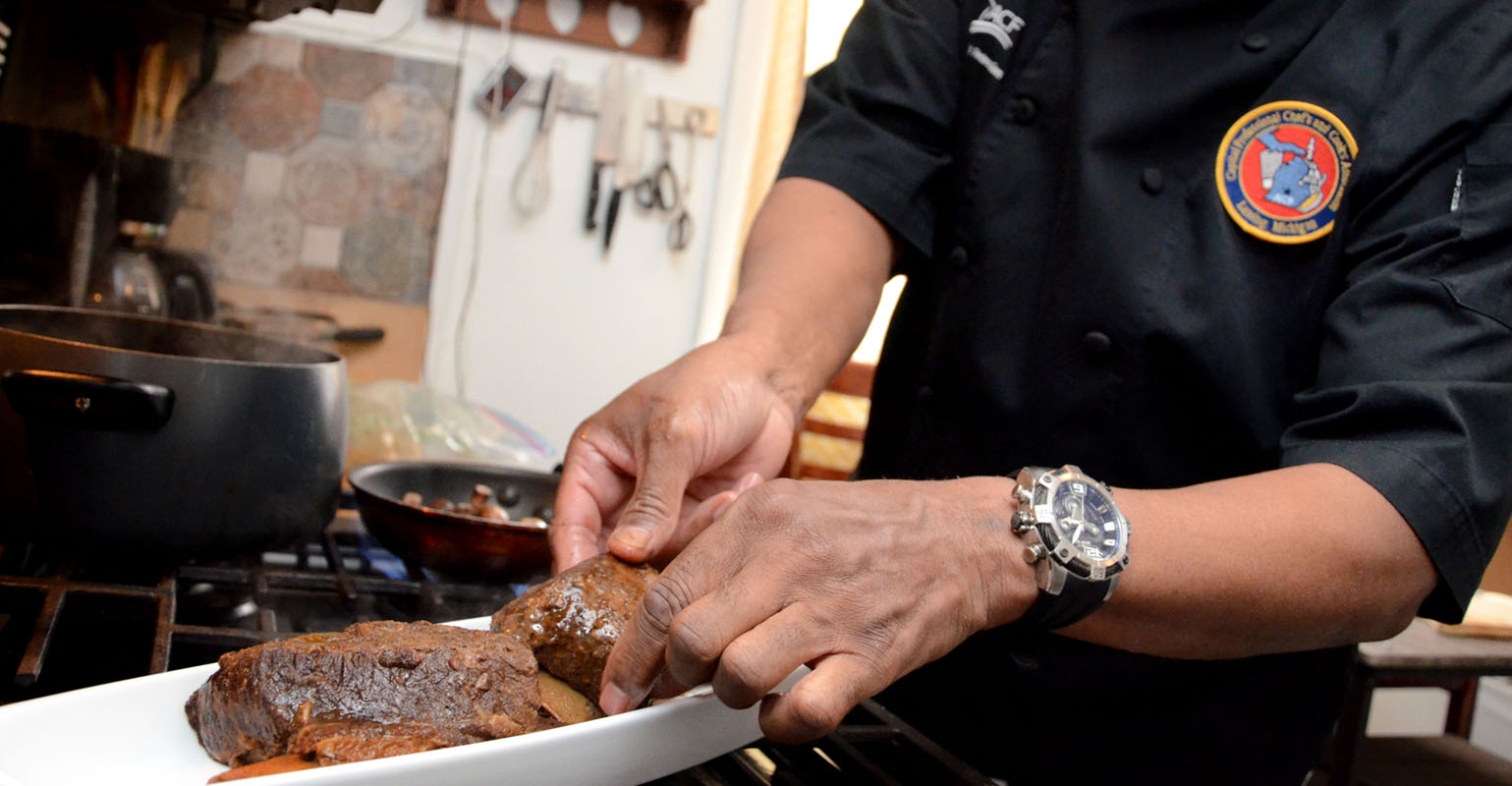
A chef’s toque is one of the many hats that I wear at work. As a chef/instructor inside a correctional facility, I also wear the hat of a Father to those who are fatherless, a Brother to those who grew up with only sisters, a Mentor to some who look up to me and want to continue on this journey outside of these fences once released from incarceration, a Pastor to those who know that without God, none of what we do is possible and just needs to hear about the goodness of the Lord, and a Comedian because we need to laugh in spite of all the situations that surrounds us. The reason why I continue to make this 134-mile round trip to the job is because I feel that my students, regardless of the circumstances as to why they are here, once they enroll into the culinary arts program, deserves the same chance as a Culinary Institute of America or a Johnson and Wales University student to receive the same training and information: to become a well-rounded culinary professional.
I can remember my first time that I got to be in the kitchen with my momma. I remember she let me pick something to cook out of an old Betty Crocker Cookbook that she had. I was 8 years old and I picked a Chicken and Vegetable Soup because the picture looked good on that page. Little did I know at the time that I was eating with my eyes. I attempted to make the soup that I had seen in the book. After adding all the ingredients and the right amount of liquids, I cooked it too long and all the liquid evaporated and when I saw it in the pot, it was thicker than it was when I started. I didn’t know it at 8 years old, but when you cook a soup too long, everything in the pot including the liquid, condenses down and then it becomes a stew. I let my parents taste it and they said, “Jimmy, this is pretty good” so I then took some next door to our neighbor’s house and they said, “Boy, Jimmy, this is some kind of good!” I didn’t know that they were affirming or giving me emotional support and at the same time encouraging me to continue to be better at what it was I was doing. I now continue to do the same to my students. There isn’t a lot of good affirmation being spread around in the correctional facility. So, when someone is doing the right thing or they prepare a great dish, I tell them. If I persistently repeat that they are excelling in class, the more they hear it, the more they believe it and continue to do well. I also, as a high school student in Muskegon Heights, Home Of The Muskegon Heights Tigers, received that same kind of encouragement from the teaching staff. During our time there, the teachers were always interested in and very encouraging towards all the students. Had I not had the two most important mentors in my life, Solomon Tbo and Blanch Mae Hill, two very Southern parents, I wouldn’t be where I am today in terms of learning about food. My mother was in the dietary department at Muskegon General Hospital and my father, he sold barbeque and “All Things” out of our garden. I thank The Lord for both of them!
Chef Jimmy Lee Hill has dedicated 32 years to improving education inside of Michigan's Correctional System. When Chef arrived at the Lakeland Correctional Facility in Coldwater, the program was a simple cooking class without textbooks. Today, the program is robust using industry-recognized curriculums and certifications, including the Foundations of Restaurant Management & Culinary Arts Level 1 and Level 2, ServSafe Food Manager, and the AHLEI, Start Program.
Chef Hill has also developed an employer network to support his graduates upon parole in gainful employment. The employer network visits his program and provides mentorship throughout the year. The most significant event is the Food Service Symposium. At the Symposium, students open dialogue with industry leaders on current food trends, employment outlook, and other critical employability discussions. Following the conversation, students provide a five-star quality meal for the industry volunteers that showcase the talent developed in the program. The Food Service Symposium is an annual event and currently has a waitlist of industry professionals looking to attend.
They say proof can be measured. In 1998 Michigan's recidivism rate was close to 45.7%; in 2020, that number was lowered to 26.6%. Chef Hill's program is operating with a 6% recidivism.

